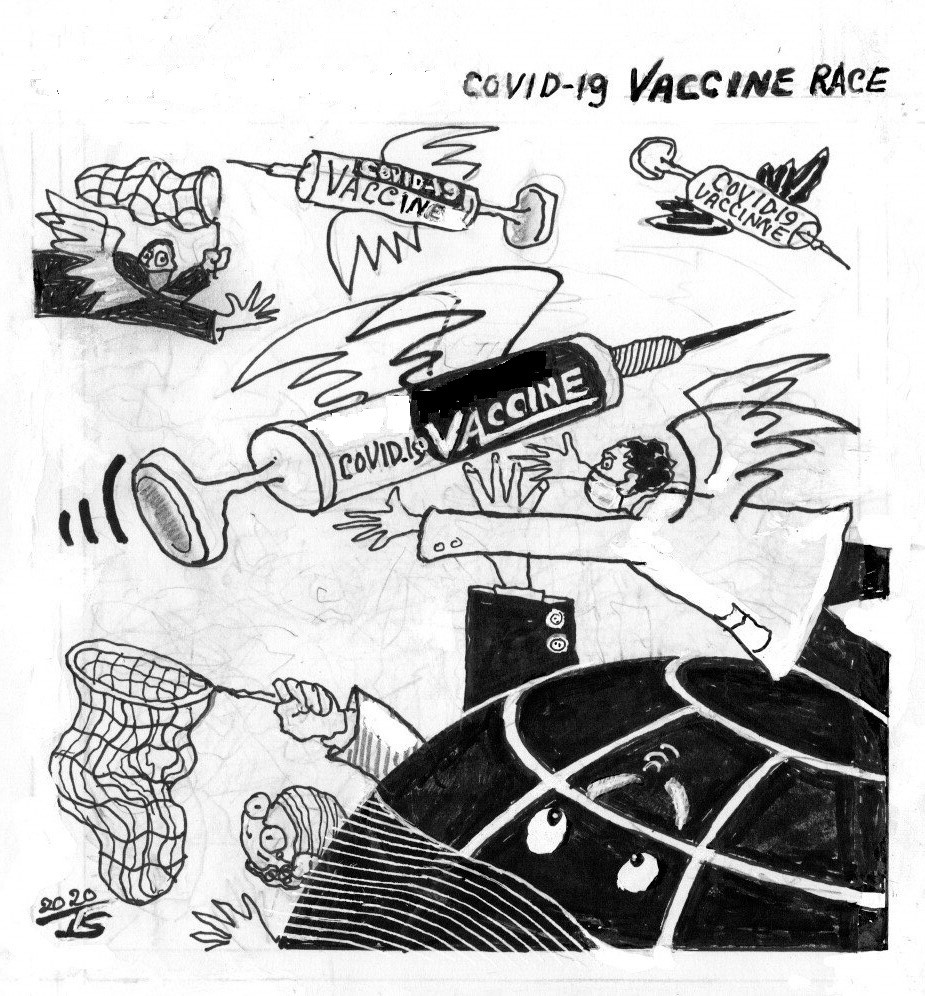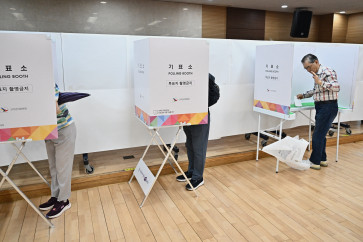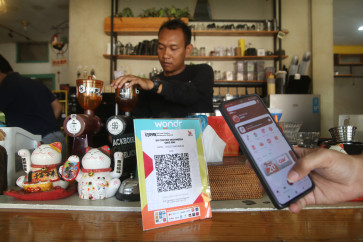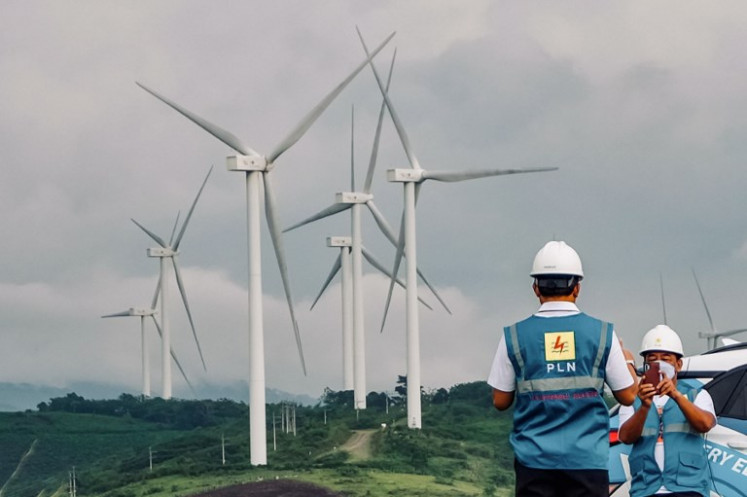Old vaccine, new hope? Give OPV a chance
It is, therefore, now time for Indonesia to conduct a study on the possible use of OPV as a temporary measure against COVID-19.
Change text size
Gift Premium Articles
to Anyone

I
n an emergency, innovation — not invention — can be a solution. This might be the case with oral polio vaccine (OPV) being used as a potential vaccine for COVID-19.
The World Health Organizations’ “Situation Report 15” (who.int/indonesia) says the threshold for Indonesia’s positivity rate should be below 5 percent. However, some provinces have a positivity rate of between 15 and 25 percent. Immediate measures are needed to curb the very aggressive SARS-CoV-2, the virus that causes COVID-19.
Indonesia, like many other countries, is struggling to develop a vaccine for this new coronavirus. The development of vaccines usually takes a long time. The longer the delay, the more victims COVID-19 will claim.
Science magazine published an article by Konstantin Chumakov et al titled “Can Existing Live Vaccines Prevent COVID-19?” (science.sciencemag.org). The vaccine that the article referred to is OPV.
OPV, which is a live attenuated vaccine, was developed in the 1950s. Since then, it has been used to prevent a poliomyelitis outbreak. OPV immunization induces a long-lasting antibody response to the polio virus. With time, several experiments revealed that OPV has some positive side effects, protecting children from diseases caused by other viruses and bacteria.
As cited by Chumakov et al, a clinical trial in Guinea Bissau, for instance, showed that OPV given at birth reduced infant mortality by 32 percent. Repeated OPV immunization in this country, in the absence of a circulating poliovirus, reduced all-cause mortality at the range of 16 to 19 percent. This means that OPV can prevent diseases from unrelated pathogens (pathogens other than polio).
Clinical trials conducted in Russia in the 1970s involving more than 60,000 individuals showed that OPV was effective against influenza. It reduced morbidity by 3.8-fold on average.
Based on the mounting evidence, experts then concluded that OPV induces not only an antibody response (which is specific and long lasting for polio), but also the earlier level of the immune response, called “innate immunity”.
However, innate immunity, which confers broad protection from unrelated pathogens, is short term. OPV given during childhood will not confer protection against unrelated pathogens during adulthood, unless a booster is provided.
This temporary nature of the innate immune response is not unique to OPV but common to all live attenuated vaccines such as Bacillus Calmette-Guérin (BCG) for tuberculosis, measles and smallpox.
OPV was first introduced in Indonesia in 1981 (kemkes.go.id). Since then, the vaccine has been used nationwide as part of Indonesia’s immunization program against poliomyelitis. The most recent campaign was during national polio immunization week in March 2016 (www.idai.or.id). OPV is effective, cheap and user friendly as it is administered by drops not an injection.
There is concern from WHO and some polio-free developed countries that a vaccine can cause a reversion to virulence. Developed countries then replaced OPV with the inactivated polio vaccine (IPV). IPV, however, does not induce an innate protective immune response as OPV does.
Actually, only one in 3 million doses of OPV will possibly revert back to virulence when administered into a naive immunocompromised individual. Albeit small, this risk should not be ruled out. OPV is until now still licensed in many countries to eradicate polio.
At present, there is no evidence that OPV can specifically prevent COVID-19. In the absence of evidence, WHO does not recommend OPV and other live attenuated vaccines to be used for SARS-CoV-2. As such, several clinical trials are now underway, including 13 trials for BCG, one for measles and one for OPV (clinicaltrials.gov).
It is, therefore, now time for Indonesia to conduct a study on the possible use of OPV as a temporary measure against COVID-19. This study, similar to other clinical trials for COVID-19 drugs and therapies, must proceed with caution, in particular with regard to safety protocols.
The Indonesian pharmaceutical industry has the capacity to produce OPV, both to meet domestic and international demand. A small fraction of it can be used for a clinical trial.
The vaccine repurposing experiment should involve at least 5,000 study participants enrolled in a randomized controlled clinical trial. The participants should be people most exposed by the novel coronavirus.
With concerted support from the government and other stakeholders, the speedy results of the trial might be attained within three to six months.
If proven to be effective, OPV can be administered as an innovative stop-gap measure until the specific vaccine for SARS-CoV-2 is available.
This clinical trial should be considered an attempt to support Indonesia’s economic recovery. As Indonesia is committed to embracing a “new normal”, workers are back at work at a time when the pandemic curve has not yet flattened. They need protection — even protection that is temporary in nature.
OPV is not a promise for a cure, but a clinical trial is worth pursuing.
***
Marsia Gustiananda is head of the Department of Biomedicine at the Indonesia International Institute for Life Sciences. Siswo Pramono is director general of the Foreign Ministry’s Policy Analysis and Development Agency. The views expressed are their own.









